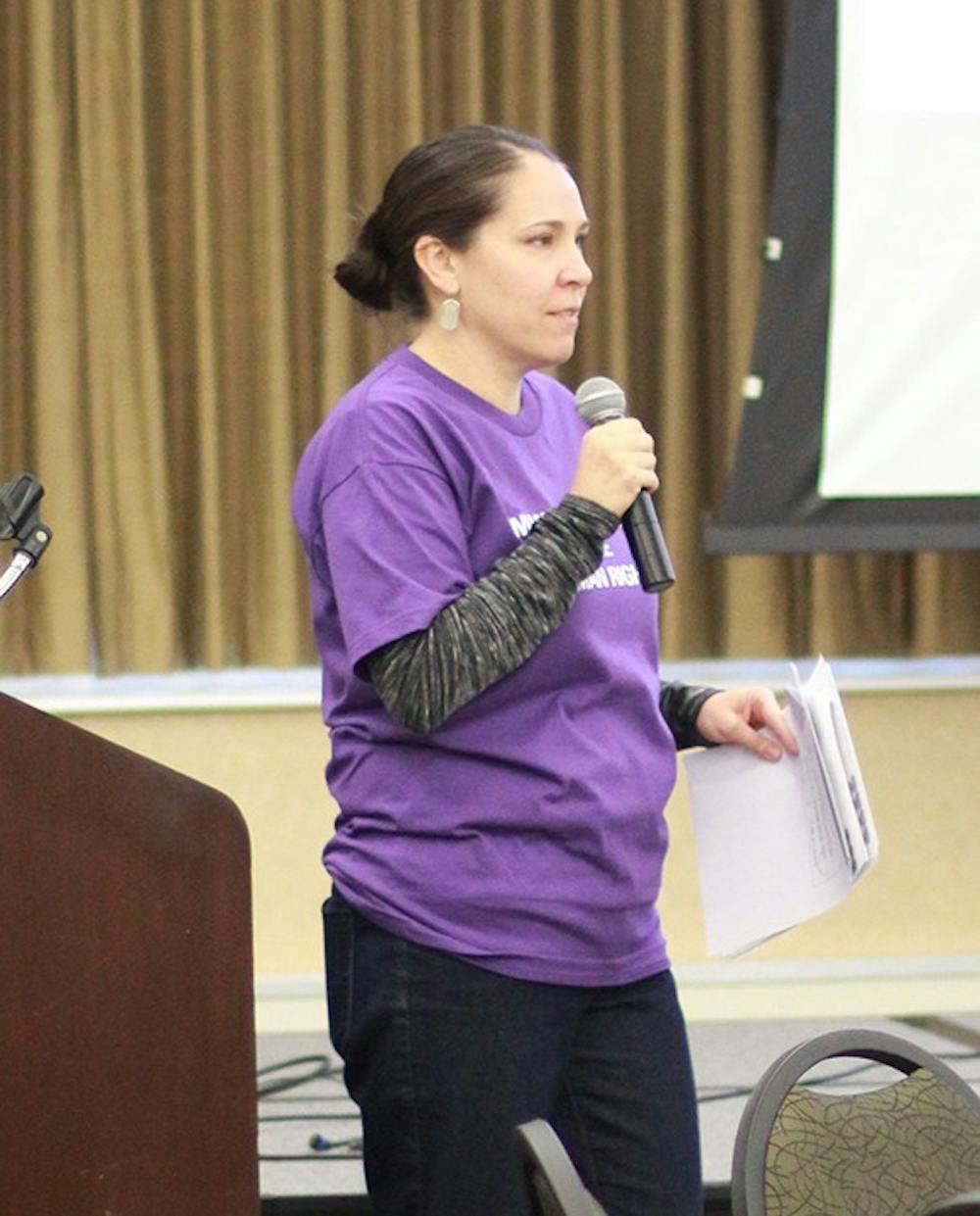“That’s not in my department.” “You’re wasting my time, come on!” “Don’t you know any better? Move on, move on!” shouted the faculty at the students.
The lines were clustered and inconvenient, and the process was confusing. This was a simulation of what it is like to be an immigrant in the United States of America.
Last Wednesday from 9 a.m. to 1 p.m., the Shippensburg University Social Work and Gerontology Department hosted four informational sessions during an immigration workshop in Reisner Dining Hall’s Tuscarora Room, aiming to educate students about the complexities of immigration in the U.S.
The first session was an introduction to immigration, explaining the reasons why the topic matters to social work students. The workshop opened with a game of myth versus fact, where the faculty made several statements about immigration, which were either proven as a fact or debunked as a myth. This included ideas like “All immigrants are here illegally,” or “A wall along the southern border will stop immigration.” Both of which are myths.
The faculty then showed a TED Talk speech delivered by Jose Antonio Vargas called “Actions are Illegal, Never People.”
Vargas said he was unable to become an American citizen because of the constraints of the U.S.’s current immigration policies.
The second session was a hands-on activity. Students were given a name and a brief background of a “character” as they trudged through the process of becoming an American citizen.
The social work faculty portrayed immigration officials and occupied several tables that made up the intense bureaucracy of the immigration system, complete with an obnoxious help desk.
They asked questions pertaining to wealth, abilities, fame and assured employment in the U.S. and gave a star or a cross to indicate whether the immigrant passed that stage of the immigration process.
The activity was incredibly telling of the process — the faculty members were either polite, dispassionate or downright rude depending on the character the student was portraying.
Across the room, you could hear the faculty demeaning the immigrants from Mexico or India, while in other situations, the faculty were asking famous singers for autographs.
The process was confusing, and was not helped by the sprawling lines that stretched across the room, intersecting with one another.
The final two sessions discussed immigration policy, as well as ways that students could get involved and advocate for immigration reform.
Social Work Department Chair Deborah Jacobs said the event began last year with the topic of racially-motivated police brutality. Jacobs said the idea of educating students stemmed from the current political climate in the U.S.
“We felt our students did not have a strong enough basis in this topic,” Jacobs said.




The Slate welcomes thoughtful discussion on all of our stories, but please keep comments civil and on-topic. Read our full guidelines here.